Advertisement feature
The impact of the COVID-19 pandemic, ongoing conflicts such as in Ukraine and climate change have all impaired food security, as well as causing dramatic rises in prices of food, fertilisers and fuel.
In the UK, the price of consumer goods and services rose at the fastest rate in four decades in the year to October 2022. Yet, little is being communicated about the severe consequences that rising inflation is having around the world. The UN reports that “shockingly, the world is back at hunger levels not seen since 2005 – and food prices remain higher in more countries than in the period from 2015-2019.”
Compassion UK, the international child development charity, is seeing first-hand the devastating effects these rising costs and scarcity of resources are having on children living in poverty.
Read on to discover how Compassion’s local church partners are supporting children and families in their communities during this time of unprecedented difficulty.
Asia: Meeting the need in Sri Lanka
In late 2020, as Sri Lanka reeled from the pandemic’s impact, UNICEF reported that 36% of families were reducing the food they ate to survive. By April 2022, when the economic crisis hit, that number doubled to 70%.
Families are making tough decisions to survive. With soaring prices and demand outstripping supply, an economic crisis grips Sri Lanka.
Compassion participant Akshan’s father, Rajan, works as a mason—his pay depends on how much work he can find. “If I buy chicken and maybe one other item, all my earnings for that day are gone,” he says. “The next day, I might want to buy toothpaste for my family, but then we won’t have money for food.”
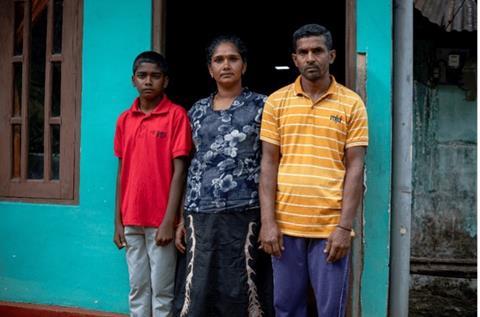
Through Compassion’s support for Akshan, the family receive regular food packages. “I know if we don’t have anything, we can call the project staff, and they’ll always give us what we need. We get by only because of Compassion,” says Akshan’s mum, Chandradevi.
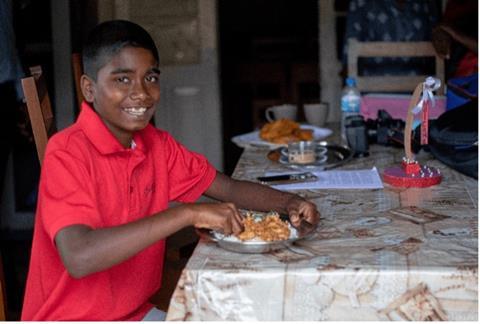
Central America: Fighting Malnutrition in Honduras
Eight-year-old Dana lives in an urban community in Honduras with her parents and four siblings. “Cereal with milk for breakfast was a meal that we couldn’t afford—until my children enrolled at the Compassion project,” said Lilian, Dana’s mother.
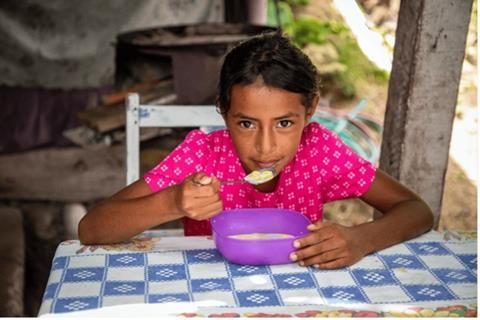
Putting food on the table for her five children has always been tough for Lilian and the challenge is growing. Their small fruit and vegetable stall at the local market has struggled since the COVID-19 pandemic, and now high oil prices have severely impacted the food supply chain.
Like Dana’s family, more than 2.6 million people in Honduras are at risk of food insecurity. Among the most vulnerable are children who live in poverty. During a routine medical check-up at Dana’s Compassion project, she was diagnosed with acute malnutrition – also known as wasting. According to UNICEF, children with wasting are too thin, and have weak immune systems, leaving them vulnerable to developmental delays, disease, and death.
Through timely intervention of nutritional supplements and regular food deliveries, Dana and her siblings have overcome malnutrition and are starting to thrive. “If not for the Compassion project, I don’t know where we’d be,” says Lilian.
Africa: Protecting Farming Families in Uganda
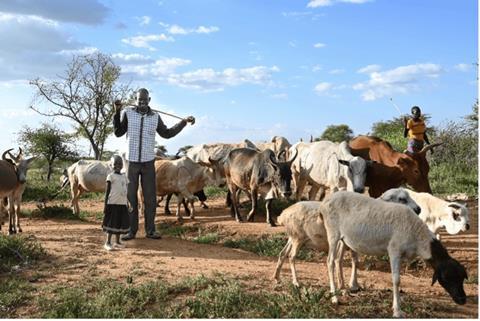
The Karamoja region in Uganda has become known for cattle raids. The government has been disarming them, but raiders continue to terrorise communities. “In March this year, we heard the raiders are not only taking cattle but also household items—and they’re killing males in the family so they can’t retaliate,” says Deborah, a staff member from one of Compassion’s frontline church partners.
Eli and his family were victims of these raiders; he fled the village and survived, but the robbery left them with almost nothing.
Eli’s family have received food from Compassion since the raid. While times are dangerous and challenging, hope remains thanks to the care of the local church.
Joseph, the Programme Support Specialist in charge of Interventions for Compassion Uganda says, “We hope children can have at least two meals a day to improve their physical and mental wellbeing, which will also enable them to participate at the project.”
While immediate food relief is vital, Compassion Uganda is also developing long-term solutions, such as irrigation networks so people can plant crops all year round, as well as seeds, fertiliser, farming equipment and training.
How Compassion is Assisting Children and their Families
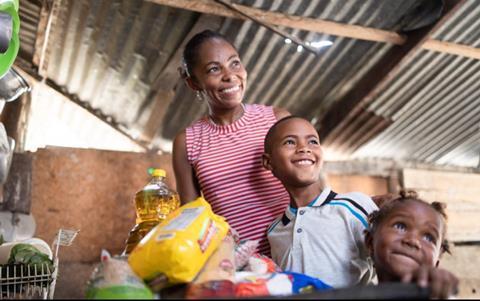
Thanks to donations from supporters, Compassion has provided:
232,801 households with food packs, benefitting an estimated 1,027,000 individuals
26,355 households with cash transfers to empower parents and caregivers to make decisions about the best way to support their families
12,487 households with agriculture support
7,880 households with sanitation and hygiene resources.
Find out more about Compassion’s Food Crisis Appeal


























